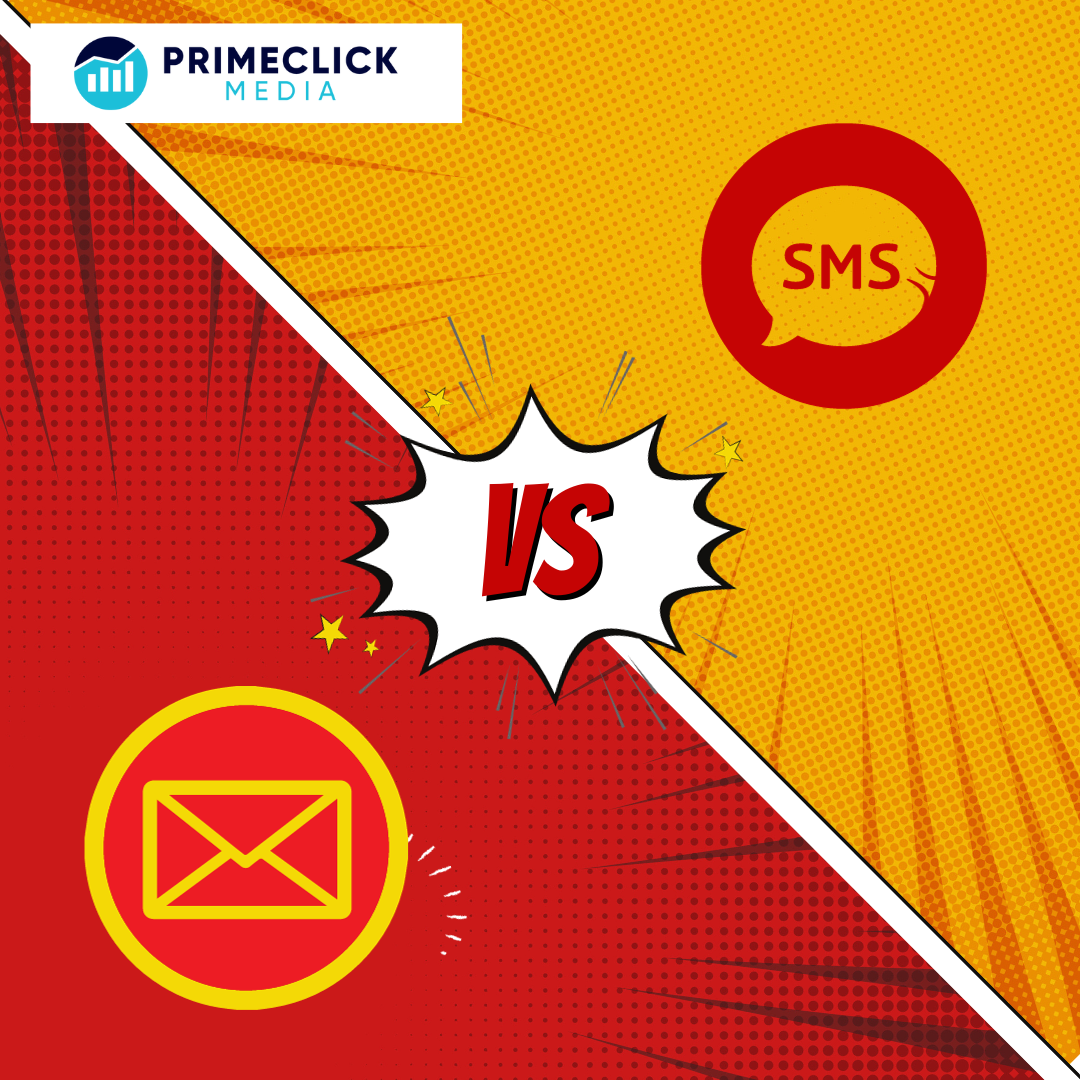Email marketing and SMS Marketing are two powerful tools that stands out in this ever evolving landscape of digital marketing. For reaching your audience, both are valuable, but they have distinct advantages and drawbacks. The blog shall delve into the key aspects of each, helping you determine which one might work better for your marketing strategy.
Let’s start by understanding Email marketing –
Email marketing is a well-established and widely used digital marketing technique. It includes sending targeted emails to a list of subscribers or potential customers. The critical aspect of email marketing involves –
1. Content variety – Email can be used to send out a variety of content, including newsletters, product updates, offers for promotions, and instructional materials. This adaptability makes a customized strategy possible.
2. Analytics and tracking -Email marketing solutions offer a wealth of information, allowing you to track conversion rates, click-through rates, open rates, and other metrics. You can improve your campaigns by using this data.
3. Audience reach and engagement – Email marketing is perfect for companies with a wide clientele since it gives you the ability to contact a large audience. It works well for nurturing leads, converting them to customers, and keeping them loyal.
4. Design flexibility – Email marketing allows your branding and design freedom. You may design eye-catching themes that capture the essence of your company.
5. Cost-effectiveness – Email marketing is less expensive than traditional advertising, so it’s a good option for companies on a tight budget.
Now let’s understand SMS marketing –
Also known as text message marketing, SMS marketing is a more direct and instantaneous form of communication. It includes sending text messages to potential customers and subscribers. The essential aspect of email marketing involves –
1. Short and direct – Having only limited characters which is the length of SMS messages, it usually goes up to 160. This limitation encourages concise and to-the-point messaging.
2. High open rates – Very high rates of SMS messages are opened, frequently within minutes of being sent. Because of this, it’s a great option for urgent notifications and promotions that run out quickly.
3. Immediacy – SMS messages create a sense of urgency, making them effective for flash sales, reminders and other time-essential communications.
4. Integration with other channels – Enhancing your overall marketing strategy, SMS marketing can complement other marketing channels too.
5. Opt-in and permission-based – Customers must opt-in to receive messages in most cases for SMS marketing to work. This guarantees that an audience that is open to your words is receiving them.
Comparative Analysis of Email and SMS Marketing –
● In terms of open rates, SMS marketing often outperforms email marketing. When an SMS is received, it’s usually read within minutes, but an oversized inbox can make emails difficult to see.
● Because email marketing enables more comprehensive and interesting information, it can achieve greater click-through rates than SMS. SMS texts, on the other hand, can be more direct and prompt action.
● A range of materials can be used in email marketing to keep people interested for a long time. SMS works better for brief exchanges and communication that is action-oriented.
● Because email marketing allows for greater freedom in both design and content, it offers more options for personalization. Nonetheless, SMS messages’ immediacy can make them feel more intimate.
● Email marketing offers greater opportunities for segmentation and personalization than SMS marketing, although both can be used to target particular consumer segments.
● Generally speaking, email marketing is less expensive than SMS marketing because delivering SMS messages can be more expensive, particularly for large campaigns.
● Stricter rules apply to SMS marketing, such as gaining recipients’ express agreement. If you don’t cooperate, there may be legal repercussions. There are rules for email marketing, but they are not as strict.
● Email marketing platforms frequently provide a smooth integration with CRM systems and other marketing tools. Integration of SMS marketing is also possible, albeit it could need extra software.
How to decide between Email and SMS Marketing –
Understanding the audience base – Audience is the key to your success and understanding your targeted audience is the first step to executing an effective marketing strategy. When deciding between SMS and email, the same concept applies. You must ascertain what tools your target customers use to make purchases as well as the preferred channels of communication for them to interact with your company.
Certain consumers could be more interested in promotional text messages than others, and vice versa. It’s okay! For optimal results, segment your contact lists and make use of both channels.
Considering the type of message – A key issue to take into account when deciding between email and SMS marketing is the kind of message you want to send. Your decision between email and SMS marketing should be based on the kind of message you want to deliver. Every
channel has advantages, and you may optimize the success of your marketing initiatives by carefully utilizing them according to the goals and nature of your message.
Knowing your marketing goals – Understanding your marketing objectives is the first step in choosing between email and SMS marketing. Email marketing is a great option if your goals are to provide in-depth content, nurture leads, and create enduring client relationships. SMS marketing is excellent for time-sensitive advertising, high open rates, and instant interaction.
Choosing the best channel to accomplish your marketing goals will be made easier if you have a clear understanding of your target market and goals. Combining the two approaches can also be a successful tactic for all-encompassing and adaptable marketing initiatives.
Testing and analyzing results – Testing and result analysis are essential to figuring out which marketing channel—between email and SMS—is most effective. Keep an eye on KPIs like conversion, click-through, and open rates. Determine which channel, for your particular audience, produces the best ROI and level of engagement. Think about your campaign’s objectives, target audience, and messaging. Make educated selections by regularly assessing
data, and be prepared to modify your approach as needed to guarantee that your audience is reached as effectively as possible.
Depending on what your goals are, you can choose between SMS and email marketing. Email is a flexible, affordable, and highly engaging medium. For content that must be viewed quickly, SMS is efficient, direct, and instantaneous. Use both SMS and email to take immediate action or long-term engagement, respectively, and make the most of each channel’s advantages in your marketing plan.





